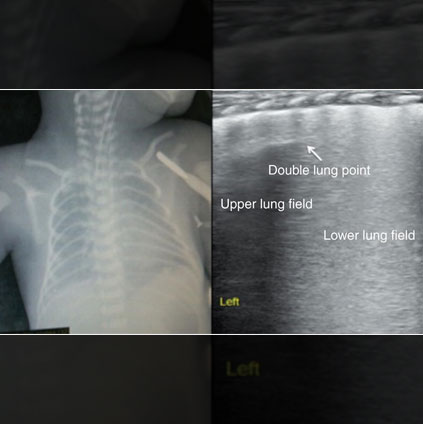
Transient Tachypnoea of NewBorn (TTN)
Transient Tachypnoea of NewBorn(TTN)
Transient tachypnoea of the newborn (TTN) is one of the commonest causes of respiratory distress in newborns especially in late-preterm and term infants. TTN results from delay in clearance of fetal alveolar fluid after birth (water in the lungs). The management consists of supportive care, with symptoms generally resolving by 24-72 hours of age.
TTN occurs mainly in infants born between 33 - 34 weeks gestational age, although it is also known to occur in infants delivered at term. Risk factors for TTN include caesarean section, delivery before completing 39 weeks of gestation, maternal diabetes, maternal asthma, male gender, and small or large-for-gestational age baby.
Fetal lung fluid is essential for normal lung development and is secreted by lung epithelium. A few days prior to the onset of labour, lung fluid production decreases. During labour, maternal epinephrine and glucocorticoids stimulate absorption of alveolar fluid. “Vaginal squeeze” only accounts for a fraction of the fluid absorption. TTN results from disturbance in the mechanisms responsible for fetal lung fluid clearance.

Clinical Presentation
- First hours of life with respiratory distress
- Tachypnoea; Recession/retraction/nasal flaring, grunting.
- Cyanosis (blue discolouration)
- Barrel chest (symmetric hyperinflation)
Other potential diagnosis
- Respiratory distress syndrome
- Pneumonia
- Meconium aspiration syndrome
- Pneumothorax
- Central nervous system irritation or metabolic acidosis
- Congenital lung and heart malformations.
Investigations
- Pulse-oximetry
- Blood gas (to look for respiratory acidosis) and glucose level.
- Chest X-ray (AP and Lateral).
- Septic screen
- ECG/echocardiography if suspecting Congenital Heart Disease
Management
- Supportive treatment and careful evaluation/exclusion of more serious conditions
- Respiratory support (CPAP with or without supplemental oxygen)
- If sepsis suspected, investigations and treatment as per protocol
- Commence feeds when baby can tolerate them.